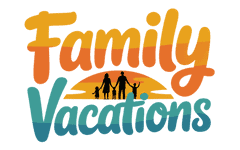Before you even get your room key, the front desk already knows who you are. One glance, one tone of voice, one small request—and they’ve got you pegged. Hotel workers are masters of first impressions. They can spot the high-maintenance guest, the frequent traveler, the honeymooner, and the one who’s about to ask for a late checkout… before you even finish your sentence.
So what exactly can they tell about you in just sixty seconds? From your stress level to your spending habits, these front desk pros reveal the secrets they’ve learned from welcoming thousands of guests—one check-in at a time.
Your Mood
A cheerful demeanor often brightens the lobby atmosphere. When you walk in with a smile, it suggests you’re ready to enjoy your stay.
Conversely, a furrowed brow might indicate travel fatigue or stress. Front desk staff are adept at reading these cues to tailor their approach.
They may offer a warm greeting or a quick check-in, depending on your mood. This ability to gauge emotions helps in providing personalized service.
Travel Purpose
The presence of a briefcase or a suitcase hints at your travel purpose. A business attire suggests a work-related trip.
Vacationers might carry casual wear or travel guides. Recognizing the purpose influences the type of amenities or services offered.
Guests on business might be directed to conference facilities, while leisure travelers could be informed about local attractions.
Attention to Detail
Guests who take a moment to appreciate the lobby decor often have an eye for detail. This trait may suggest a preference for quality and luxury.
Such guests might value amenities like spa services or fine dining. Staff may highlight these features during the check-in process.
Conversely, a focus solely on efficiency might indicate a preference for a streamlined experience.
Communication Style
A warm, engaging conversation style can indicate openness and friendliness. Some guests enjoy exchanging pleasantries or asking questions.
Others might prefer concise, efficient interactions. Recognizing your style helps staff adjust their communication accordingly.
For those who enjoy chatting, they may provide more detailed information about services or local tips.
Cultural Background
Cultural nuances can be subtly observed through attire or language. These elements can hint at a guest’s cultural background.
Understanding cultural differences allows staff to offer respectful and considerate service. For example, greeting customs may vary.
By recognizing and adapting to these cues, the staff can enhance the guest’s stay, making it more comfortable and welcoming.

